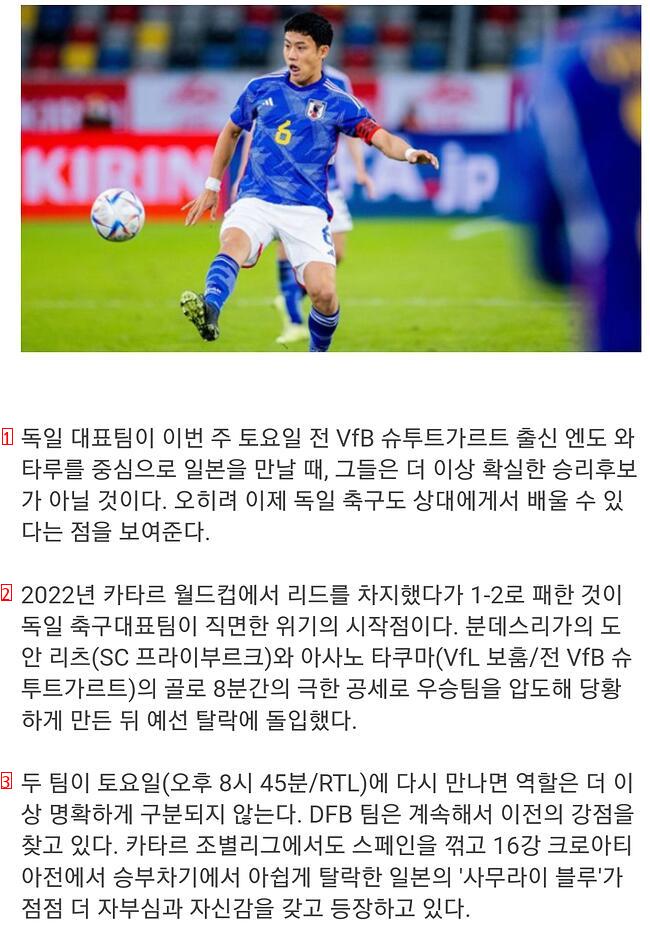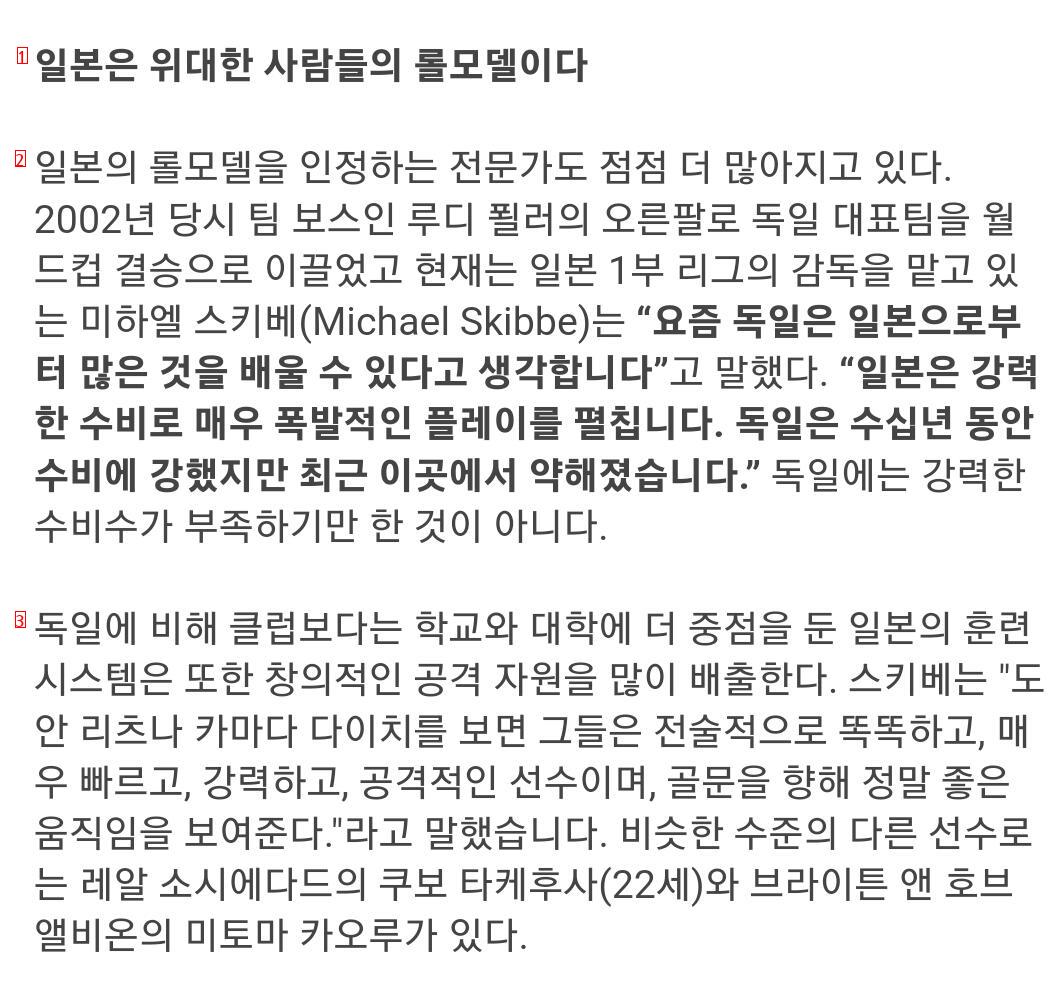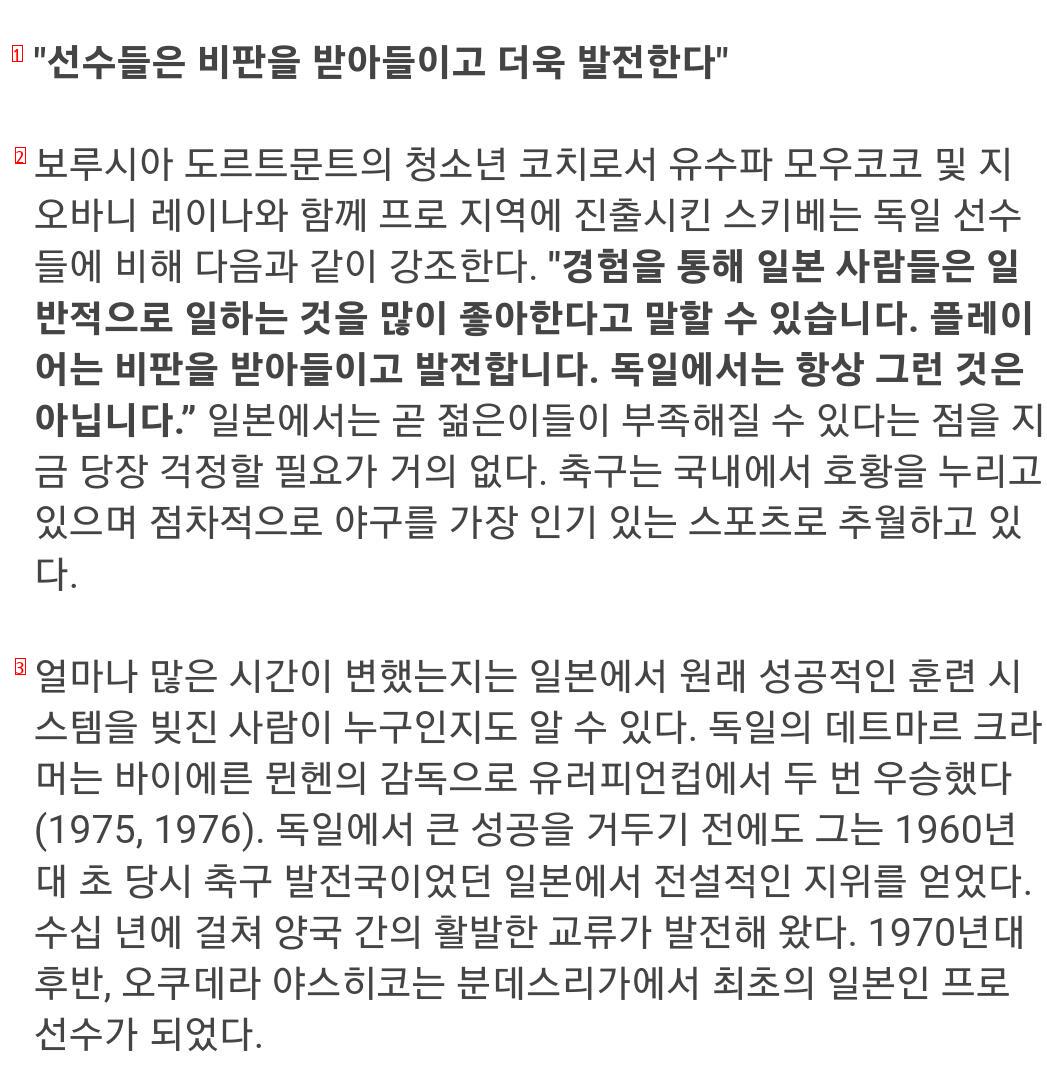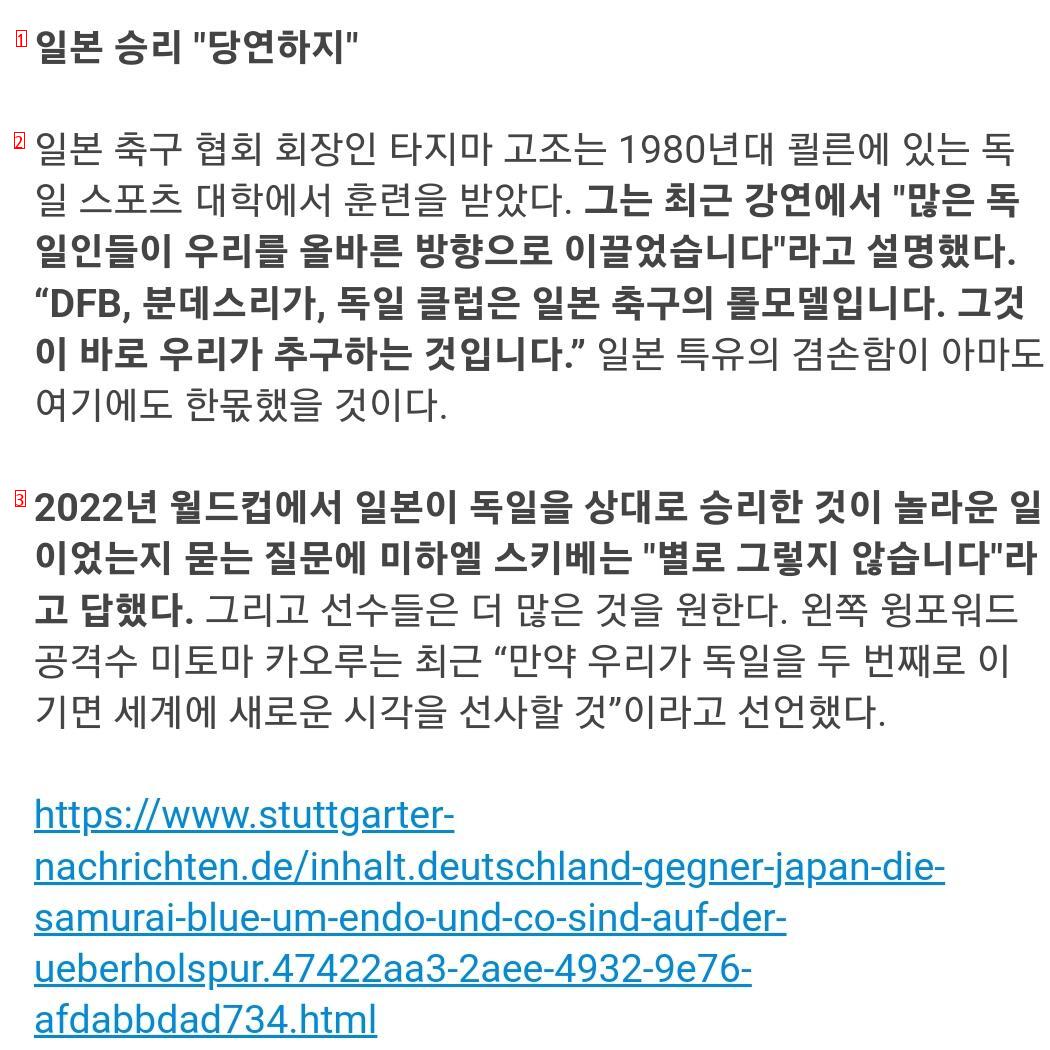(1)They will no longer be a clear favorite when the German national team meets Japan this Saturday around Endo Wataru from former VfB Stuttgart Rather, it shows that German soccer can now be learned from its opponents
image text translation
(2)The German national soccer team’s 1-2 loss after taking the lead in the 2022 Qatar World Cup is the starting point of the crisis. Bundesliga’s Doan Ritzsc Freiburg and Asano Takuma VfL Bochum’s VfB Stuttgart’s goals overwhelmed the winning team with eight minutes of extreme offensive and embarrassed them before qualifying
(3)The roles are no longer clearly distinguished when the two teams meet again on Saturday at 8:45 p.m. RTL. The DFB team continues to look for its former strengths Japan’s Samurai Blue, who defeated Spain in the Qatar group stage and was eliminated from the penalty shoot-out against Croatia in the round of 16, is increasingly appearing with pride and confidence
(1)Japan is a role model for great people
image text translation
(2)More and more experts are acknowledging Japan’s role model”I think Germany can learn a lot from Japan these days,” said Michael Skibbe, who led the German national team to the World Cup finals in 2002 as the right-hand man of then-team boss Rudy Poehler and is now the head coach of Japan’s first division “Japan has a very explosive play with strong defense Germany has been strong in defense for decades, but it has weakened here recently.” Germany is not just short of strong defenders
(3)Compared to Germany, Japan’s training system, which focuses more on schools and universities than on clubs, also produces more creative offensive resources, Schibe said, “If you look at Doan Ritz or Kamada Daichi, they are tactically smart, very fast, powerful and aggressive players and show really good movement toward the goal.” Other players on a similar level include Kubo Takefusa 22, of Real Sociedad, and Mito Ma Kaoru of Brighton and Hove Albion
(1)Players accept criticism and develop further
image text translation
(2)Scivet, who has joined Yusufa Moucoco and Giovanni Reina as Borussia Dortmund’s youth coach, emphasizes the following compared to German players From experience, I can say that Japanese people generally like to work a lot The player accepts criticism and develops That’s not always the case in Germany.” In Japan, there’s little to worry about right now that young people could soon become scarce Soccer is booming at home and is gradually overtaking baseball as the most popular sport
(3)How much time has changed can also be seen in Japan who owes the original successful training system Germany’s Detmar Kramer has won the European Cup twice as manager of Bayern MunichEven before his great success in 1975 and 1976 in Germany, he gained a legendary status in Japan, then a football powerhouse, in the early 1960sActive exchanges between the two countries have developed over the decades, and in the late 1970s, Yasuhiko Okudera became the first Japanese professional player in the Bundesliga
(1)Japan won. Of course
image text translation
(2)Tajima Gozo, president of the Japan Football Association, trained at the German Sports University in Cologne in the 1980s In a recent lecture, he explained, “Many Germans have led us in the right direction.””DFB Bundesliga German Club is a role model for Japanese soccer That’s exactly what we’re after.” Japan’s inherent modesty probably played a part in this, too
(3)Asked if Japan’s victory over Germany in the 2022 World Cup was surprising, Michael Skibbe replied, “Not really.” And the players want more Left wing forward striker Mito Ma Kaoru recently declared, “If we beat Germany for the second time, it will give the world a new perspective.”
!
